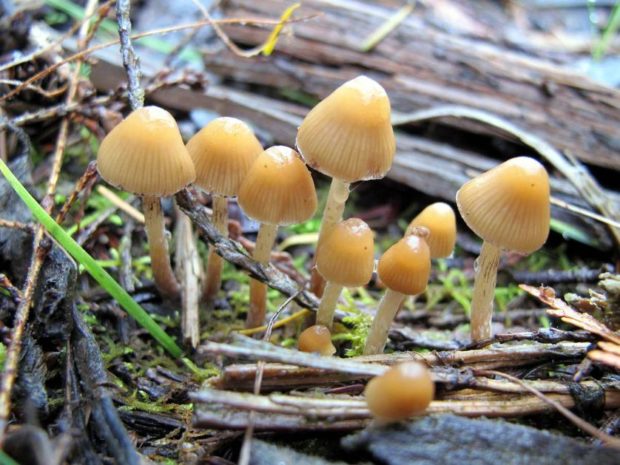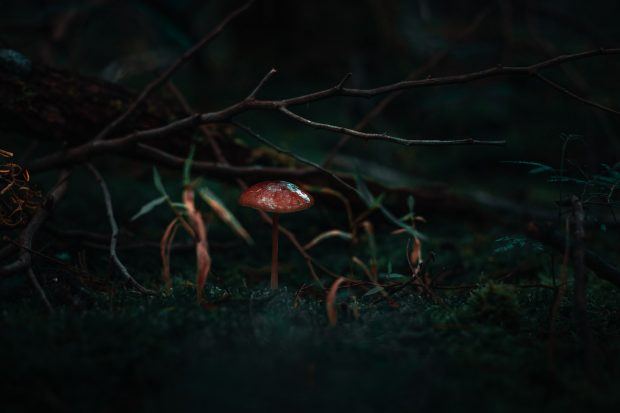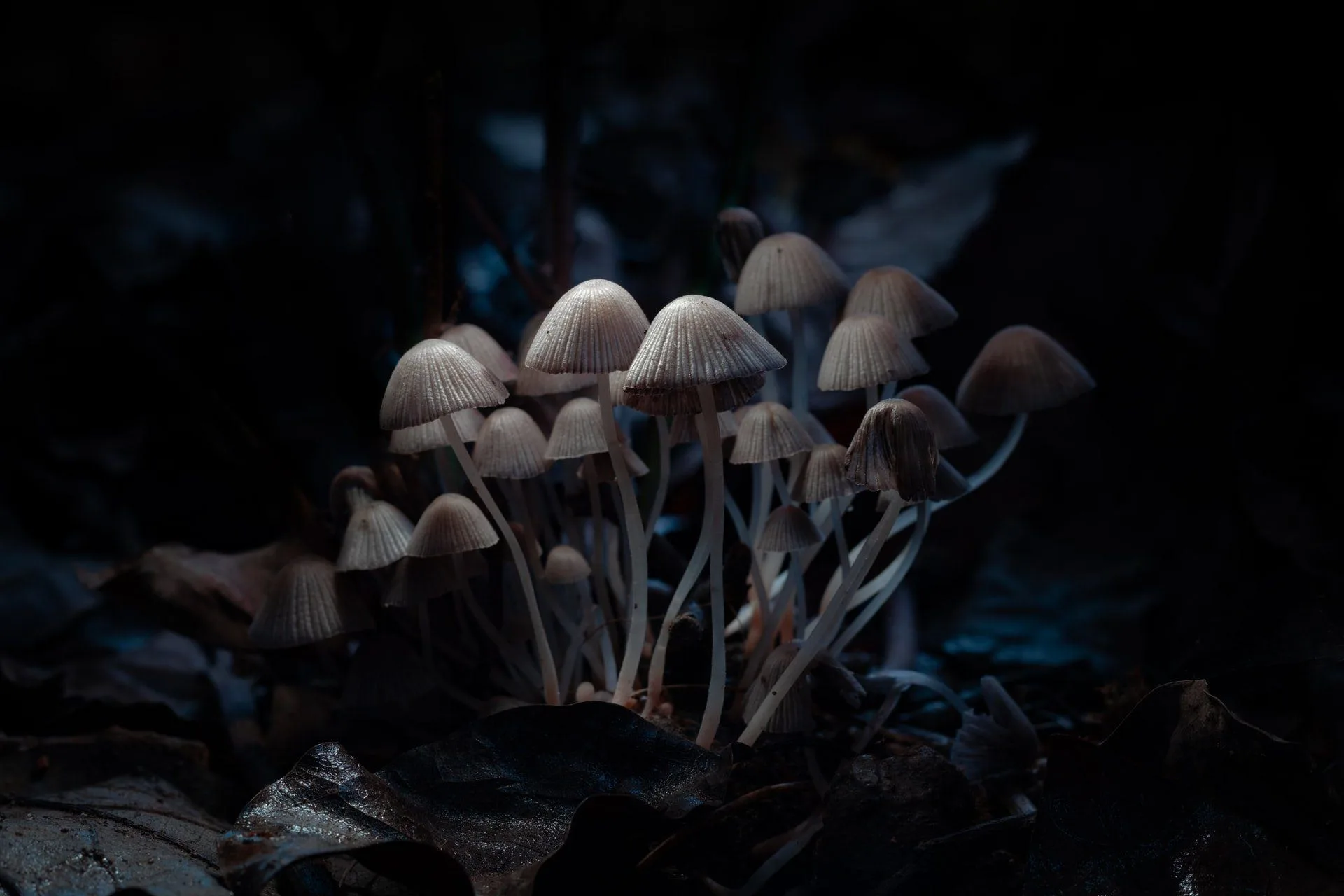Tripping is going mainstream as research into magic mushrooms continues to grow. Research into magic mushrooms was initially halted during the ’70s and ’80s thanks to Ronald Reagan’s War on Drugs. However, the past few years have seen a resurgence of clinical research looking at the effects of magic mushrooms.
The Magic Behind The Mushrooms
Magic mushrooms get their “magic” from a compound known as psilocybin. The compound is responsible for providing that euphoric and trip effect, but it may also provide health benefits.
As of this time, magic mushrooms are still classified as a Schedule I drug. Schedule 1 drugs, which include LSD and heroin, have, according to the Drug Enforcement Administration, a high potential for abuse and serves no legitimate medical purpose in the United States. We should also mention that cannabis is also classified as a Schedule 1 drug and yet, it’s been proven to provide a number of medical benefits.
Similar to cannabis, the change in attitude towards magic mushrooms and other psychedelics has opened the floodgates when it comes to research, with many studies revealing the role that psilocybin treatment can play when it comes to improving your health.
6 Longevity Benefits of Magic Mushrooms
1. Depression
The majority of psilocybin studies are looking into their potential as a treatment for mental health disorders, most notably depression.
According to a study published in the Journal of Psychopharmacology, psilocybin was found to reduce depression levels in 27 individuals with moderate to severe unipolar depression. Participants were given two doses of psilocybin every 2 weeks between August 2017 and April 2019.
The researchers found that the participants’ depression levels remained low 1-, 3-, 6- and 12-months after the treatment.
 In a separate study published in Nature Medicine, researchers analyzed fMRI brain scans from nearly 60 people who had participated in two psilocybin trials. According to the scans, the psilocybin treatment reduced connections within brain areas that are tightly connected to depression.
In a separate study published in Nature Medicine, researchers analyzed fMRI brain scans from nearly 60 people who had participated in two psilocybin trials. According to the scans, the psilocybin treatment reduced connections within brain areas that are tightly connected to depression.
“For the first time, we find that psilocybin works differently from conventional antidepressants – making the brain more flexible and fluid, and less entrenched in the negative thinking patterns associated with depression.
This supports our initial predictions and confirms psilocybin could be a real alternative approach to depression treatments.” – David Nutt, DM, head of the Imperial Centre for Psychedelic Research.
Now, while these findings are promising, the authors of the study caution against patients with depression self-medicating with psilocybin.
2. Anxiety
A 2016 study from Johns Hopkins University found that out of 51 cancer patients, those who were given a high dose of psilocybin experienced an improved quality of life and decreased levels of depression and anxiety.
A more recent review from 2020 also found the same thing when reviewing three different studies where participants had depression and anxiety related to life-threatening illnesses. For the three studies, the individuals took lab-synthesized psilocybin. The review authors found that psilocybin did help relieve feelings of both anxiety and depression.
3. Post-traumatic stress disorder (PTSD)
While research into the effects of psychedelics on PTSD is focused more on MDMA (ecstasy), there is research that suggests that psilocybin can help with post-traumatic stress.
According to an animal study published in Experimental Brain Research, low doses of psilocybin erased the conditioned fear response in mice. According to the researchers, this supports the hypothesis that psilocybin can help break the traumatic cycle that occurs in patients with PTSD.
It should be mentioned that this study is from 2013, so we definitely need more recent research.
4. Assist with substance use cessation
If you’re struggling with cutting back on substance use, studies suggest that magic mushrooms could help.
In regards to alcohol abuse, a study published in the Journal of Psychopharmacology found that alcohol abstinence did not increase significantly in the first 4 weeks of treatment (when participants had not yet received psilocybin), yet it did increase significantly following psilocybin administration.

Photo by Ahmed Zayan on Unsplash
In a more recent pilot study from 2018 that analyzed psilocybin-assisted treatment of alcohol dependence, participants noted changes in their personal relationship to alcohol.
For those hoping to kick the smoking habit, Johns Hopkins University suggested that magic mushrooms can help longtime smokers quit. According to the findings, which were published in 2014, following a carefully controlled and monitored use of psilocybin, the abstinence rate for study participants was 80 percent after six months, substantially higher than typical success rates in smoking cessation trials.
In a follow-up study from 2018, researchers from Johns Hopkins found that psilocybin therapy significantly improved abstaining from smoking over a 12-month follow-up period.
5. Migraines
For those battling crippling migraines, a study published in Neurotherapeutics suggested that magic mushrooms may provide relief.
The study, published last year, had 10 frequent migraine sufferers consume a placebo capsule. At least two weeks later, they then consumed a capsule containing a low dose of psilocybin.
The findings revealed an association between psilocybin and a greater reduction in the frequency of migraines compared to the placebo. Additionally, a link between psilocybin and reductions in both headache pain severity and migraine-related functional impairments was also established. Despite the promising findings, study author and assistant professor of neurology at Yale School of Medicine Emmanuelle A. D. Schindler advises us not to get ahead of ourselves.
“It’s important to remember that there is no silver bullet when it comes to headache management,” says Schindler,
“Psilocybin and related compounds might simply be added to the toolbox of treatment options. What we learned from this study though, is that psilocybin seems to work in a new way compared to other treatments, which is more valuable than simply replicating an already existing form of treatment.”
The facts behind the magic
As magical as these mushrooms are, the reality is that they are psychedelics and psychedelics are very unpredictable. In addition to the fact that it’s quite psychologically dangerous, psilocybin has also been found to affect cardiovascular health by increasing blood pressure and heart rate.
That said, psilocybin therapy isn’t exactly a shroom-fest. All the aforementioned studies happened in controlled environments.
Nonetheless, regardless of our opinion on this, the only opinion that matters at this time is that of the FDA who will continue to delve into the aforementioned benefits and other studies before satisfactorily concluding that magic mushrooms are the magic that our health needs.



![women [longevity live]](https://longevitylive.com/wp-content/uploads/2020/01/photo-of-women-walking-down-the-street-1116984-100x100.jpg)










